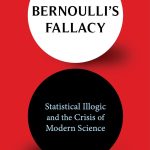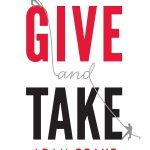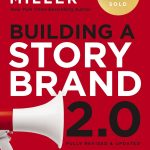
Customers say
Customers find this book to be a worthy read that provides a framework for understanding trauma. The book is lucidly written and explains concepts in great detail, making it easy to understand. They appreciate its well-researched information, with one customer noting how it deepens understanding of PTSD, and consider it essential reading for those in the field.
Make It Yours – See Your Price On Amazon!
Your Sales Price $21.99 - $14.49
A quick rundown of this product’s key features:
The groundbreaking work on trauma that remains a “classic for our generation” (Bessel van der Kolk, MD, author of The Body Keeps the Score)
Trauma and Recovery is the foundational text on understanding trauma survivors. By placing individual experience in a political frame, psychiatrist Judith L. Herman argues that psychological trauma is inseparable from its social and political context. Drawing on her own research on incest, as well as a vast literature on combat veterans and victims of political terror, she shows surprising parallels between private horrors like child abuse and public horrors like war.
This edition includes a new epilogue by the author assessing what has—and hasn’t—changed in understanding and treating trauma over the last three decades.
Hailed by the New York Times as “one of the most important psychiatry works to be published since Freud,” Trauma and Recovery is essential reading for anyone seeking to understand how we heal.
Our Top Reviews
Reviewer: ilovemigisomuch
Rating: 5.0 out of 5 stars
Title: THE book to understanding trauma and depression
Review: I have suffered from severe, debilitating depression for several years as a result of a trauma that is actually completely unrelated to what this book focuses on. Despite not having suffered trauma due to a rape, war or kidnapping, I found this book to be life-changing. I looked and searched endlessly for in-depth information to explain why I feel the way I do, and until this book, there was absolutely nothing out there. I came across countless webpages, medical literature, books, shows, blogs, essays, research papers, medical sites, and none explained WHY. A great deal of them focused on symptoms, but only general symptoms that could apply to a great deal of things. Besides, I already knew what my symptoms were. Another significant portion were dedicated to veterans and PTSD. I would read them, but again, they would still only discuss things on a very superficial basis. Blogs would talk about what medications people took, and arguments would ensue about who had the worse story. Medical literature would delve into explanations of which receptor and which brain lobe shrunk or expanded, and shock rates of rats. Why was there no simple explanation for why people feel these symptoms when suffering from trauma? I even asked my psychiatrist that I see twice a week -I would beg him to explain to me in detail what I had, why I had this, when I would get better, and why I experienced these awful symptoms. He would always respond the same way…. that I had “complicated depression,” “complicated grief,” and that I had “experienced a severe trauma.” Any symptom I specifically asked about, was just a “symptom common in trauma.” Was there just NO explanation?Based on my past experience with being let down, I had little faith this book would be able to explain what I have been going through for several years now, ESPECIALLY because it focuses on trauma related to rape, war, kidnapping. “Trauma and Recovery,” however, explains trauma in a way that relates to EVERYONE and explains it in GREAT DETAIL. The detail and depth was beyond any hope I had or anything I could have imagined. It brought up points that I did not even consider, and thoughts that made me learn a great deal about my affliction. In fact, this book brought to light answers and closure for issues that I had tried to address with my $300/hr psychiatrist for the past 3 years. I thought to myself, “wtf?! what took my doctor so long and why has he been torturing me about this???!” Yes – this book WILL drum up emotions, and it did cost me plenty of tears and opening of wounds that were supposedly healed over, however, I definitely needed to understand the answers to these questions in order to move on.This is an ideal book to have your family, spouse, significant other, or other supportive individual read. A great struggle for me, and one that has brought me much pain, is feeling as though I constantly have to explain myself and my actions/affliction to my family. They are actually the most supportive people anyone could ever hope for, yet they STILL can’t understand what it is that I am going through or why I do the things I do. It is an awful feeling. I begged them to read this book, they didn’t unfortunately, but I truly believe that if you love someone who is going through PTSD, depression/trauma/grief, you would show amazing support in reading this to help them.In terms of what I have, and how this helped me…. I have experienced ups/downs, cycles of feeling great, then feeling terrible, not being able to get out of bed or my home for days even weeks, withdrawing socially, unable to work for several years, feeling unbelievably overwhelmed by the littlest of things, losing track of time, barely able to keep up with anything, uninterested in anything, no form of romantic relationships whatsoever, flashbacks to the event(s), extreme fatigue, uncontrollable sobbing, anxiety, hopelessness, chest pain, accelerated aging, feeling like something in me has permanently changed and I’m not “me”, indifference, guilt. This is the foremost work in bringing to light the underlying cause(s) for these symptoms and why/how trauma affects us differently that just plain depression.If you need this book, I send you my prayers and wish you the best in your or your loved one’s recovery.
Reviewer: Ruth Henriquez Lyon
Rating: 5.0 out of 5 stars
Title: A political and very necessary book.
Review: This is not your usual trauma recovery book. Most books on healing explain symptoms, offer exercises, and provide illuminating case histories. Judith Herman does all this, but she goes beyond just focusing on healing oneself in isolation. We are social animals, and must live within our culture. Thus, how our culture regards trauma and traumatized people is very important to those trying to become reintegrated into society after massive psychic shock. Dr. Herman explains our modern Western culture’s attitudes toward trauma and the traumatized, gives a fascinating and pertinent history of how those attitudes have changed throughout the past century, and shows how those attitudes affect how survivors recover.Dr. Herman sets forth most of this broader cultural history in Part 1, Chapter 1, “A Forgotten History.” She begins with the female hysteria patients of 19th Century Europe, and ends up with the Vietnam veterans’ movement to demand treatment for battle induced post-traumatic stress. The veterans’ work bore fruit. In 1980 the American Psychiatric Association included “post-traumatic stress disorder” in its official manual of mental disorders. This paved the way in the 1980s for victims of rape, childhood abuse, and domestic violence to be treated for post-traumatic stress disorder symptoms.Part of the history Herman sets forth explores why people tend to shun and try to silence trauma survivors. She writes, “It is very tempting to take the side of the perpetrator. All the perpetrator asks is that the bystander do nothing. He appeals to the universal desire to see, hear, and speak no evil. The victim, on the contrary, asks the bystander to share the burden of pain. The victim demands action, engagement, and remembering.”I would guess that most people recovering from trauma have experienced the dynamic of those around them “taking the side of the perpetrator.” Without understanding why they are doing so only compounds the suffering the survivor experiences, and intensifies the feeling that one is tainted, bad, or defective for having been traumatized in the first place. In exploring the cultural dynamics of collective repression and denial, Herman does a great service to those who must heal and re-enter a culture which can sometimes be seen to be in league with the perpetrators in our world.The remainder of Part 1 deals with the types of abuse and the symptoms which follow. This information can be found in other books, but here it is set in a larger cultural context which helps the reader to make more sense out of the symptoms.Part 2 describes the stages of recovery. This information is very concrete, very helpful, and hopeful as well. Dr. Herman outlines three main stages: establishing safety, remembering and integrating one’s story, and re-integrating oneself back into the social world.This book is probably the most helpful book I have read on trauma recovery in 20 years. Dr. Herman’s idea of exploring the social matrix in which healing occurs is brilliant. After all, we are all connected. We cannot heal ourselves without making some sort of peace with the culture around us. We cannot always change the attitudes of those around us, but we can learn to understand, and thus approach those who cannot comprehend our reality with at least some measure of forgiveness and compassion.
Reviewer: まき
Rating: 5.0 out of 5 stars
Title:
Review: 非常に分かりやすい英語で書かれています。日本語版よりシンプルでストレートな表現です。日本語版も良いけど私にはこちらの方が伝わってくるものがありました!翻訳と原書のニュアンスの違いも結構あって、こちらを読んで良かったです。
Reviewer: christian sauzede
Rating: 5.0 out of 5 stars
Title:
Review: une très bonne étude sur ces différents états émotionnels. Texte clair et précis pouvant être compris sans difficulté par une personne n’étant pas médecin.
Reviewer: Cjh
Rating: 5.0 out of 5 stars
Title:
Review: This is a good book to learn about yourself and to build up your confidence knowledge and understanding of what you can achieve
Reviewer: Lion_cub
Rating: 5.0 out of 5 stars
Title:
Review: Judith Herman has underlined the importance of an integrative approach to healing from trauma and provided the evidentiary support framework. Highly recommended
Reviewer: Cliente Amazon
Rating: 5.0 out of 5 stars
Title:
Review: Quello di Judith Herman è un contributo importantissimo per conoscere e trattare il trauma. Ha una visione molto ampia e ben radicata nelle problematiche sociali e culturali. Il trauma non è visto solo da una prospettiva medico-scientifica ma piuttosto inserendo la persona all’interno del contesto umano, familiare, relazionale e sociale a tutti i livelli. Denuncia l’ineguaglianza e la violenza, richiama l’urgenza di scardinarle per una maggiore giustizia sociale.
Price effective as of Apr 06, 2025 12:23:02 UTC
As an Amazon Associate Dealors may receive a commission for purchases made through these links.









